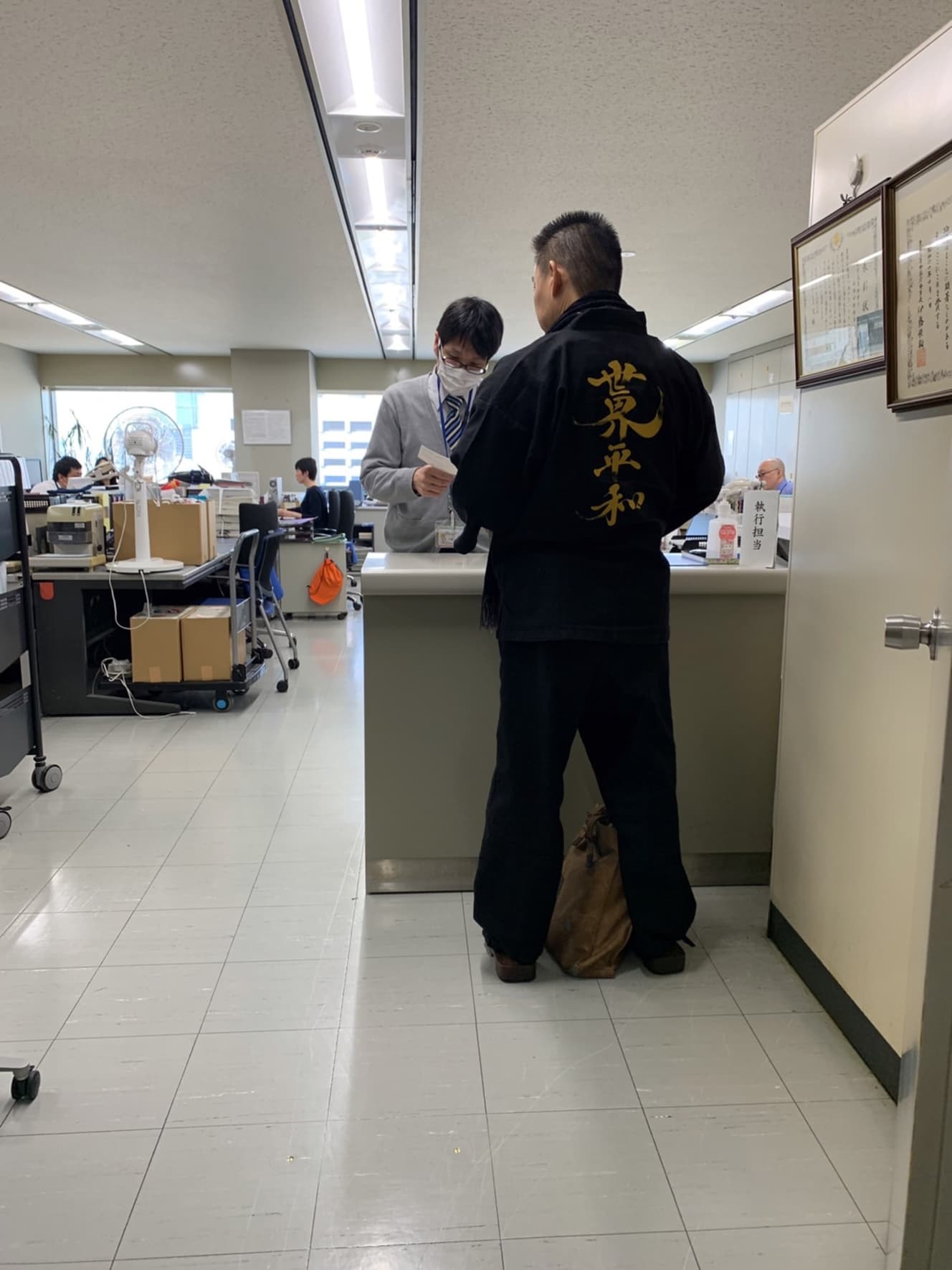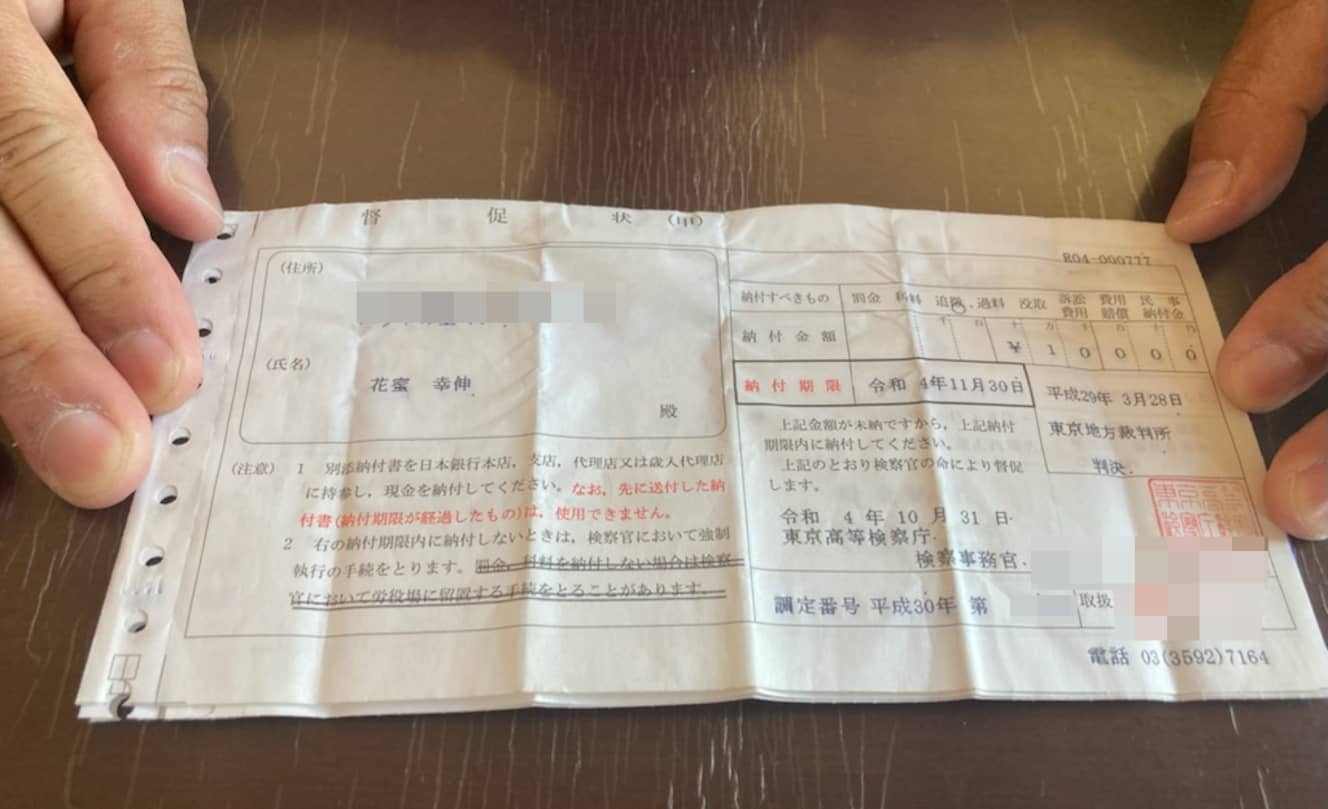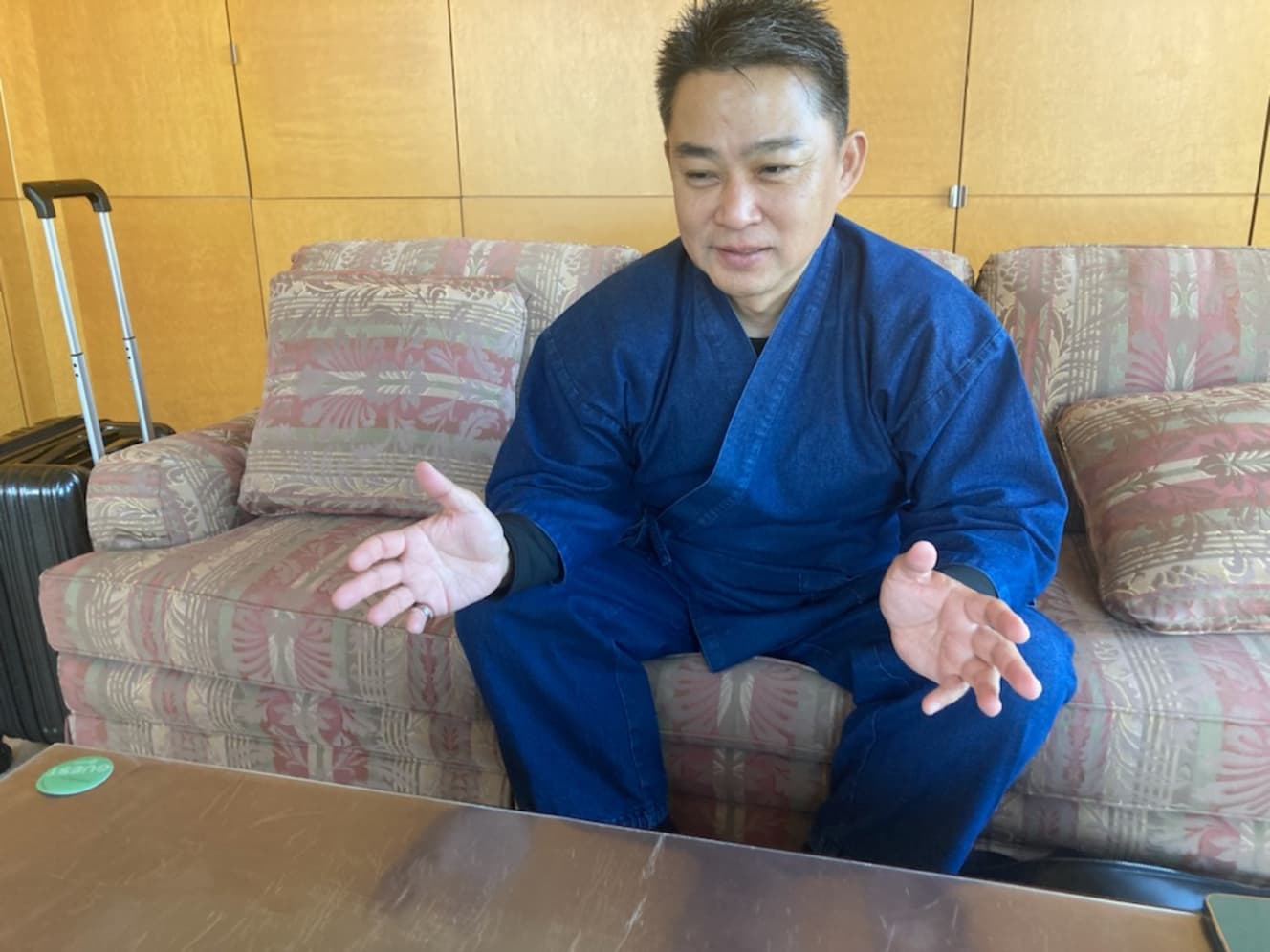The Founder of “Dezakukan,” Which Caused the Stock Price Plunge, Speaks of “Four Years and Four Months in Hell and the Surprising Present

Back then, I didn’t have the courage to die.
I didn’t have the courage to die back then,” said Yukinobu Hanamitsu, 53, founder of the “world’s first food delivery company,” as he gazed off into the distance. He is the driving force behind the company’s market capitalization of 84 billion yen (as of October 14, 2010).
Mr. Hanamitsu continued to attract attention by launching new businesses. Dezaikan grew steadily. However, Mr. Hanamitsu’s life suddenly took a dark turn. He was convicted of financial instruments trading violation (market manipulation).
He said, “I kept buying stocks with the intention of helping the company, but on a morning in February 2004, the Securities and Exchange Surveillance Commission of the Financial Services Agency suddenly raided my house. When I was summoned by the FSA on charges of violating the Financial Instruments and Exchange Law and market manipulation, the first thing they said to me was, ‘We will investigate you on the charges,’ and they warned me that I would be arrested, prosecuted, and put on trial.
The interrogation was also conducted as if there were charges against me. If I continued to protest my innocence, the interrogation would last more than a year and I would be unable to work during that time. I couldn’t even work during that time. It was hell.
His pleas of innocence were in vain, and he was convicted in March 2005. In October 2006, he was sentenced to three years in prison, a fine of 20 million yen, and a surcharge of about 129 million yen, all suspended for four years.
Champagne in the morning at a 55th-floor tower apartment

Inspired by the scene in the movie “The Internet” in which Sandra Bullock, the lead actress, orders a pizza from her computer, he and four friends raised 100 million yen and founded Delivery House in 1999. He was in the limelight as the standard-bearer of a venture business, living on the 55th floor of a tower apartment building and enjoying champagne in the mornings, leading an elegant life. It was around 2012 that his gears began to go haywire.
The incident began at the beginning of ’12. I sensed that something was wrong with the stock of Dezentakan,” said Hanamitsu. The incident was related to the human drama at the top of the company’s management that had been going on for about 10 years prior.
In 2002, I handed over the presidency to N, who was vice president at the time, and I assumed the position of chairman. N proposed a motion to dismiss me at a board meeting. N proposed a motion for my dismissal at a board meeting, and although it was put to rest when those around him stopped him, I decided to leave the delivery center.
After leaving the management of Dezakan, Mr. Hanamitsu established a management organization, “General Incorporated Association Nippon Genki Maru,” in December 2008 and became its representative director. He became the representative director.
Meanwhile, 10 years after Mr. Hanamitsu left, an internal coup d’etat broke out at Dezakan. Mr. N, who had been expelled from the company, came to Mr. Hanamitsu for help.
He said, “I was surprised that he came to me …… after all that trouble. I was surprised. But when I heard what N had to say, I felt that he had a point about the way the management was spending money.
After Mr. Hanamitsu left the company, Dezakan became a publicly traded company. He must have been concerned about the company he had founded. Mr. Hanamitsu joined Mr. N’s side by proposing to involve the shareholders and protected Mr. N from an internal coup d’etat.

After that, N asked me to go back to the delivery center. I decided to support him from the outside as a special advisor in charge of new business. When I returned, I found that the company had become a company with nothing new and uninteresting. …… The potential within the company had dropped.
When I became involved in management again, such as developing new businesses to revive the company, I became attached to it. I thought that if I bought back the shares I had given away, I could contribute to the company by conducting new businesses even from an outside position, and I would be less likely to get involved in internal disputes.”
As ideas take shape and new businesses are born, growth is reflected in the share price. As Mr. Hanamitsu was buying back shares, there were forces that were trying to sell the company’s stock.
I was trying not to let the stock price fall,” he said. I kept buying more and more shares to keep the stock price down. However, just before the trading session ended, the stock price dropped due to a big sell-off. I got more and more heated and bought more and more shares.
Believing that the stock price would eventually rise, Mr. Hanami borrowed money from friends and acquaintances, and by June 2012, the amount had ballooned to 1 billion yen.
He continued to buy more and more shares as a defensive buy, but he fell into a trap. As a result, I had to sell all my shares, and the stock price plummeted.
The stock price was a mess.”

The trap was set by Mr. Hanamitsu’s acquaintance, T, an employee of a foreign financial institution eight years his junior, and a foreign fund.
T was introduced to me by a member of ‘Nippon Genki Maru,’ and we were such good friends that we went out drinking together…I didn’t have any account transactions with the financial institution where T worked, but out of the 1 billion yen borrowed, I borrowed 220 million yen from his customers, of which T was taking several million yen in fees to make a little money.”
One day, T called me. One day, T called me and said, “There is someone who says he will buy (stocks) collectively. It was a foreign fund, but they wanted me to sell it to them at a 7% discount. Mr. Hanami, who wanted cash, agreed.
I took advantage of the system that allows trading at the closing price of the day after the market closes to avoid wild swings in the stock price due to large transactions, etc. I signed a contract with the foreign fund T had introduced me to that allowed me to sell my shares at a 7% discount at 3:00 p.m. when trading closed.
The lower the stock price, the more profit the foreign fund would make. The lower the stock price, the more profit the foreign fund would make. Naturally, the price of Dezaikan’s stock went down. Mr. Hanamitsu fell for the trap, but he was unaware of it.
I didn’t realize that I had been deceived. I didn’t realize that I had been deceived, so they did the same thing to me again later that week, and the stock price went down so low that I was beaten to the punch.
Mr. Hanamitsu was stunned in front of the large monitor in the living room of his tower apartment as he watched the stock price plummet. Not only had his fortune been wiped out, but his social credibility had been shattered.

Shortly thereafter. A raid was conducted on his house for providing information on market manipulation transactions. Mr. Hanamitsu, who had lost his fortune, moved from his 55th floor tower apartment to temporary housing in a warehouse owned by the president of a friend. Another president financed the move to an apartment. There, creditors barged in. Some of them are people I don’t even know, and some of them are money lenders. How far could I go? While he was cowering in the dark, the Financial Services Agency began to interrogate him on the basis of the charges against him.
It would have been better to die, but I didn’t have the courage to die,” said Mr. Hanami. However, during the interrogation by the FSA, he suddenly remembered something. There was a light in the darkness.
Yes, that’s right. I still have the “Pet Village. I can still do it!
Since 2002, he and his business partner had been involved in the establishment of a general incorporated foundation, Pet No Sato, which aims to eliminate the killing of dogs and cats. The business was conceived by the partner, but he gradually became absorbed in the work of saving lives.
During the interrogation period, I kept thinking of ways to raise awareness and funds in the absence of funds,” he said. It was exciting to plan an event. I can’t let myself be discouraged. It gave me the energy to live.
His strong desire to boldly take on new challenges saved him.
He was shut in for eight months due to the stock market crash, spent one year and two months under investigation by the Financial Services Agency, two months under investigation by the Tokyo District Public Prosecutors Office, and two years and four months in court, where he fought for his innocence. …… All of this came to an end on September 26, 2006. Mr. Hanami’s long battle, which lasted a total of four years and four months, came to an end.
It was a hard battle, but there was also a happy news. Someone pledged 20 million yen in fines. Thanks to the payment of the fine, Mr. Hanami was able to escape from prison and start working on his business again.
As he decided during his interrogation, he is now involved in the pet business. He has established a veterinary hospital, a rental farm, a café, a park, and a campground in “Pet Village” in Takizawa City, Iwate Prefecture.
We are finally at the starting line. We have a long way to go. We will give shape to our excitement.
In February 2011, they plan to hold an event that will attract 200,000 people.

Interview and text by: Kaoru Natsume
Columnist, novelist, and writer. Born in Akita Prefecture. She has interviewed more than 20,000 working women about their work, love, marital life, and marriage. She has written a column from a woman's point of view, "'Expiration Date' Makes Women Uncomfortable" (Gendai Business), as well as a movie column. Her reports include "Alumni Love" (Fujin Koron) and "The Poverty of Highly Educated Women" (Sunday Mainichi). She has also written about marital problems in such articles as "Women Who Don't Divorce Strategically" (Shukan Asahi). In April 2020, her article in Nikkan SPA ranked No. 1 overall in Yahoo! In 2007, she was cured of Guillain-Barré syndrome, an intractable disease that affects only one in 100,000 people, without any aftereffects.
Photo: Courtesy of Mr. Hanamitsu